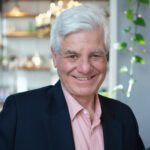Secular mindfulness is great. Jon Kabat-Zinn’s inspiration to present meditation as a nonreligious practice with scientifically proven benefits is getting countless people meditating in simple, effective ways.
Many of the leaders of the mindfulness movement are practicing Buddhists. That’s only natural, since meditation is the Buddhist specialty. But they emphasize that mindfulness is a universal human capacity and is not Buddhism. These days, it is equally important to emphasize that Buddhism is not secular mindfulness.
Perhaps feeling the pressures of competing in the spiritual marketplace, Buddhists often focus on the concrete personal benefits of Buddhism, like less stress and better relationships. Those are good things, but they are just happy by-products of the practice. They are not what Buddhism is really about.
Buddhism is about revolution, not reform. It is not about improving our lifestyle or easing our suffering in transient or superficial ways. It is about cutting suffering at its root. That requires radical changes in who we are, the ways we act, and how we see reality. Buddhism turns everything upside down, which is called enlightenment.
In one of my favorite Zen stories, a Japanese meditator leaves his hut in the middle of the night, perhaps to take a pee. In the dark, he steps right in a bucket of cold water and “his world falls apart.” Here are six things Buddhism says that could make your world fall apart.
You don’t exist.
At least, not in the way you think you do. Whether we call it soul, atman, ego, or me, we believe we have an independent, on-going identity with a solid core. But the truth is that everything we think of as a self is merely the creation of many causes and conditions, a conditioned phenomenon we can’t hold onto. This is the basic mistake we make, and Buddhism’s key insight.
Samsara is suffering.
Because it doesn’t really exist, all our attempts to protect, feed, pleasure, and strengthen our fictitious self are doomed to fail. This pointless struggle makes beings hurt themselves and others in infinite and terrible ways, lifetime after lifetime. This is the suffering that Buddhism aims to free us from.
Just stop.
In Buddhism, you don’t do anything. You just stop doing things with your body, speech, and mind that make things worse. When you sit down to meditate, you start to see your painful, dualistic thoughts and emotions, and you can let them go. Freed from their grip, you naturally stop thinking, speaking, and acting in ways that hurt yourself and others. When you reach this stage, when you have stopped generating the causes of suffering in body, speech, and mind, you have achieved personal liberation, the stage of the arhat.
Everything is perfect as it is.
When you’ve really stopped, you realize the only problems are the ones you and your ignorance—and others and their ignorance—have been creating. Otherwise, everything is fine. This was the Buddha’s great realization when he sat down under the Bodhi tree. He stopped his great spiritual struggle and saw that he and the universe were perfect as they were, sacred and enlightened. There was nothing that needed to be done.
Winning and losing don’t matter.
If you are perfect and complete as you are, you don’t have to struggle to win at life. In fact, you don’t have to worry about any of the dualistic pairs of worldly concerns—pain and pleasure, praise and blame, gain and loss, even life and death. You don’t need them to save you (and they won’t anyway).
So you can give it all away.
Normally we fight to take in pleasure and avoid pain. In the greatest reversal of all, Buddhism’s most radical act, you can take on others’ suffering and give away all your own happiness. Because, why not? You’re good either way.
So let’s step in the bucket together. May our world fall apart. That’s why we meditate.

